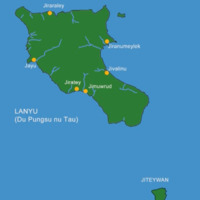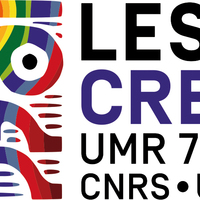Deprecated: strpos(): Passing null to parameter #1 ($haystack) of type string is deprecated in /var/www/html/themes/BBCFoundation/view/omeka/site/item/show.phtml on line 31
Deprecated: strpos(): Passing null to parameter #1 ($haystack) of type string is deprecated in /var/www/html/themes/BBCFoundation/view/omeka/site/item/show.phtml on line 45
"Chants (kariag) accompagnés de battements des mains", du village de Jayo.
Field recordings collected in Lan Yu Island (Taïwan), Yami population, by V. Arnaud in 1974.
- Edited Title
- Archivist's Original Title
- Original description
- Time duration
- Recording date of the original material
- Acquisition Date
- Population
- Place of the cultural origin
- Country Name
- Recording place
- Resource Language
- Comment
- Archivist Category
- Recording context
- Instrument, Original Archivist Data
- Collector
- Name of original Collection
- Collection source citation
- Related material
- History of ownership
- Holding Institution of Original Materials
- Licensing Institution
- Accessing Institutions
- Copyright Information
- Copyright Notice
- Physical format
- Preservation State of Physical Object
- Original item number
- SEAH Identifier
-
en
kariag jayo
-
fr
"Chants (kariag) accompagnés de battements des mains", du village de Jayo.
-
en
“Songs (kariag) accompanied by hand clapping”, from the village of Jayo.
-
en
Field recordings collected in Lan Yu Island (Taïwan), Yami population, by V. Arnaud in 1974.
-
en
01:04:14
-
en
1974
-
en
2012
-
en
Yami
-
en
Jayo village; Lan Yu Island
-
en
Yami (Tao)
-
en
InCopyright and/or related rights. URI: https://rightsstatements.org/page/InC/1.0/
For more information on the rights, please see the corpus record : https://archives.crem-cnrs.fr/archives/corpus/CNRSMH_Arnaud_001/
-
fr
A l'occasion d'une joute de "chants accompagnés de battements des mains" (kariag) enregistrée dans les différents villages. Ici à Jayo en août- septembre 1974.
Nous étions au mois de septembre, lors de cette lunaison appelée (paropotoen) signifiant "le temps de brusque retour (des morts)". Selon le calendrier yami (tao), ces chants (kariag) ne sont exécutés qu'à cette période, à un moment où les villageois préfèrent se retrouver ensemble la nuit dans "les ateliers" (makarang) pour chanter fort et taper à grand bruit dans leurs mains ou sur leur cuisses, dans le but de se retrouver ensemble pour montrer leur force et leur entrain - et aussi pour faire fuir les "morts" (anito) dont le retour est annoncé. A la "cinquième lunaison" (kaliman) ou "(lunaison) de la poterie" (peytanatana), il est désormais interdit de chanter (le kariag) : on ne le chante plus avant l'année d'après.
-
en
On the occasion of a battle “songs accompanied by hand clapping” (kariag) recorded in the different villages. Here in Jayo in August-September 1974. We were in the month of September, during this lunation called (paropotoen) meaning "the time of sudden return (of the dead)". According to the Yami calendar (tao), these songs (kariag) are only performed during this period, at a time when the villagers prefer to meet together at night in "the workshops" (makarang) to sing loudly and tap loudly. in their hands or on their thighs, with the aim of coming together to show their strength and enthusiasm - and also to scare away the "dead" (anito) whose return is announced. At the "fifth lunation" (kaliman) or "pottery lunation" (peytanatana), it is now forbidden to sing (the kariag): it is no longer sung until the following year.
-
en
Music (Vocal)
-
en
Field recording
-
en
Voix chantée
-
en
Taiwan (Lan Yu), population Yami (actuels Tao), V. Arnaud expedition, 1974.
-
en
Recordings digitized by R. Saint Estève, archived at CREM (CNRS) between 2012 and 2020, indexation and annotation by V. Arnaud.
-
In Copyright. Non-Commercial Use Permitted
-
For any use, please contact the CREM-LESC (CNRS, Nanterre University, France): crem.lesc[at]cnrs.fr ; See information at https://archives.crem-cnrs.fr
-
en
Magnetic tape
-
en
UHER magnétophone
-
en
CNRSMH_I_2013_001_001_002
-
en
SEAH_CNRSMH_I_2013_001_001_002
- Media





